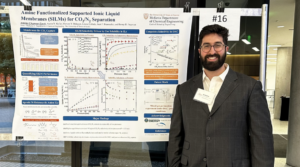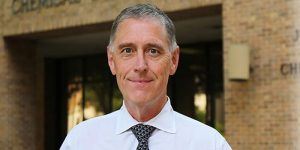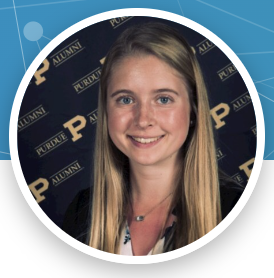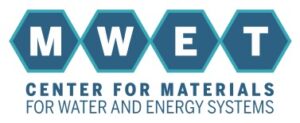Antoine Chamoun-Farah Wins First Place in the UT Energy Week Poster Session with his poster entitled, “Amine Functionalized Supported Ionic Liquid Membranes (SILMs) for CO2/N2 Separation”.
“UT Energy Week connects students, researchers, faculty, energy professionals, and industry leaders across disciplines and sectors to build community, support energy literacy and education, facilitate strategic partnerships, and advance research.”





